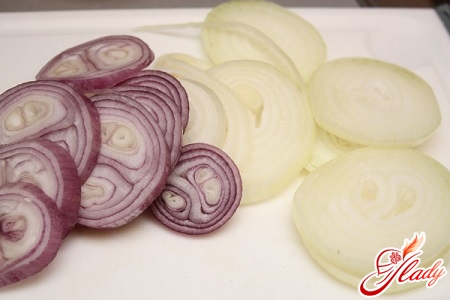 Unfortunately, people regularly encountervarious diseases, sometimes quite serious. One of these diseases is intestinal obstruction. Many people believe that acute intestinal obstruction is a purely childhood disease. However, in fact, this is not true at all - in adults, intestinal obstruction occurs no less often. Doctors call intestinal obstruction the pathological process against the background of which the intestine is blocked by foreign bodies, intestinal paralysis or volvulus. Such a condition is extremely dangerous for human life. Therefore, it requires immediate medical intervention, as a rule, surgical in all cases. Intestinal obstruction is divided into several types. For example, by the type of occurrence, doctors distinguish two forms of the disease:
Unfortunately, people regularly encountervarious diseases, sometimes quite serious. One of these diseases is intestinal obstruction. Many people believe that acute intestinal obstruction is a purely childhood disease. However, in fact, this is not true at all - in adults, intestinal obstruction occurs no less often. Doctors call intestinal obstruction the pathological process against the background of which the intestine is blocked by foreign bodies, intestinal paralysis or volvulus. Such a condition is extremely dangerous for human life. Therefore, it requires immediate medical intervention, as a rule, surgical in all cases. Intestinal obstruction is divided into several types. For example, by the type of occurrence, doctors distinguish two forms of the disease:
In addition, intestinal obstruction occursacute, chronic or recurrent. Also, intestinal obstruction can be congenital or acquired. With congenital obstruction, the child has congenital malformations of the intestine, which can make themselves known both immediately after the birth of the child and much later, already in an adult. Everything depends on the individual characteristics of the situation. And acquired are all those types of intestinal obstruction that arise under the influence of all other factors, belong to the group of acquired. Only a doctor can accurately determine the type and kind of intestinal obstruction.
Symptoms of development of intestinal obstruction
As mentioned above, obstructionof the intestines is a very serious danger to health and even life of a person. Therefore, it is so important to seek medical help in a timely manner in order to prevent the development of even greater complications. To do this, you need to know the main symptoms of intestinal obstruction. Of course, these symptoms may be different for different people, and may be noted both all at once and only some of them. However, intestinal obstruction still has quite typical symptoms:
- Cramping abdominal pain
The pain can be quite severe,that do not go away within a few hours. Very often these pains do not have a clear localization - a person cannot say exactly where exactly his stomach hurts. Strictly speaking, pain in the stomach, no matter what it is caused by, deserves the closest attention and immediate medical examination. After all, there are a huge number of different diseases, sometimes quite serious, for which painful sensations in the abdomen are typical.
- Constipation and bloating
If a person is constipated, stoolis absent for more than two days, the abdomen is bloated and gas formation is increased, there is a serious reason to worry. The doctor may suspect that the patient has intestinal obstruction.
- Vomiting and strengthened intestinal peristalsis
In the event that a person has developedintestinal obstruction, he may experience a strong feeling of nausea. The occurrence of debilitating vomiting is also very likely, and intestinal peristalsis in some types of intestinal obstruction can be quite strong. Of course, many other diseases have exactly the same symptoms, but there is absolutely no need to risk your own health and take a wait-and-see attitude. The symptoms can disappear on their own, or they can lead to the most dire consequences, so it is wiser to seek help from a doctor as soon as possible.
Causes of development of intestinal obstruction
Causes of intestinal inflammationнепроходимости, также достаточно много. Для того чтобы оказать помощь больному человеку, врачу необходимо точно установить причину, по которой развилась непроходимость кишечника. Однако и простому обывателю необходимо знать эти причины, чтобы быть особо внимательными к своему здоровью в том случае, если они попадают в группу повышенного риска развития кишечной непроходимости. Именно об этих причинах развития заболевания и пойдет речь ниже: Врожденные факторы риска: Строго говоря, врожденных причин развития кишечной непроходимости не так уж и много. Одной из таких причин может стать такая индивидуальная особенность, как мегаколон. У подобных людей определенные участки кишечника длиннее положенной нормы. И в результате риск развития кишечной непроходимости возрастает в разы. Кроме того, у некоторых людей встречается такое аномальное развитие кишечника, при котором его поворот незавершен. У таких людей риск развития непроходимости кишечника достигает примерно 70%. В том случае, если при проведении ультразвукового исследования у ребенка будет диагностирована подобная патология, родители должны крайне тщательно следить за состоянием здоровья своего ребенка. Кстати говоря, очень часто причиной рождения детей является генетическая предрасположенность. Также особого внимания требуют те дети, у близких родственников которых имела место непроходимость кишечника. Приобретенные факторы: Гораздо чаще причинами развития кишечной непроходимости являются приобретенные факторы. Такими факторами могут стать спаечные процессы в области брюшины. Причем абсолютно неважно, в результате каких заболеваний образовались эти спайки. Также кишечную непроходимость вызывают различные новообразования в брюшной полости или самом кишечнике, как доброкачественные, так и злокачественные. По мере роста новообразования могут перекрывать просвет кишечника, в результате чего, в том случае, если опухоль не будет устранена своевременно, рано или поздно разовьется непроходимость кишечника. Также достаточно часто встречается непроходимость кишечника, возникшая вследствие закупорки кишечника инородным телом. Наиболее часто врачи диагностируют подобный вид кишечной непроходимости у маленьких детей, которые имеют привычку тащить в рот все подряд. Зачастую причиной недуга может стать монетка, или оторванный от игрушки глаз, проглоченные малышом. Кроме того, в том случае, если человек страдает глистными инвазиями, особенно находящимися в запущенной стадии, у него также может развиваться непроходимость кишечника. Паразиты могут свернуться в клубок и закупорить собой просвет прямой кишки. Также просвет прямой кишки может быть закупорен камнем, в том случае, если больной человек страдает желчекаменной болезнью. Различные виды грыж, расположенные на брюшной стенке, также могут спровоцировать развитие кишечной непроходимости. Происходит это следующим образом – участок кишечника защемляется грыжей. В том случае, если человек страдает от грыж брюшной стенки, он должен быть особенно внимателен к своему здоровью и при первых же признаках кишечной непроходимости как можно быстрее обратиться за медицинской помощью. 
Diagnosis of intestinal obstruction
In order for the doctor to be able to fullyto provide the sick person with all the necessary assistance, he must accurately diagnose the disease so as not to confuse intestinal obstruction with any other ailment. To diagnose intestinal obstruction, the doctor will conduct a series of examinations and tests that will either confirm the diagnosis or refute it.
- X-ray examination
This type of research consists of the following:- a special contrast agent is injected into the patient's intestines. After this, an X-ray is taken, on the basis of which the doctor will determine whether the intestinal patency is impaired, and if so, in what part of it.
- Blood test
Another mandatory step in diagnosticsintestinal obstruction is a laboratory test of the patient's blood. Based on the blood test data, the doctor will determine whether the patient has intoxication of the body, inflammatory processes, and what his general health condition is.
- Ultrasonography
Also not the last value in the correctUltrasound examination of abdominal organs plays an important role in the diagnosis of intestinal obstruction. Some types of intestinal obstruction can only be determined in this way.
Treatment of intestinal obstruction
Once the doctors are convinced that theyare dealing with intestinal obstruction, immediate treatment of this disease will be started. Depending on what type of intestinal obstruction is being dealt with, the doctor will choose the necessary treatment tactics. Conservative treatment is as follows. The patient undergoes a bilateral novocaine blockade. After that, he is given a siphon enema. By the way, a siphon enema has not only therapeutic but also diagnostic value. If it does not have the desired effect, doctors resort to other methods of treatment. In the same case, if a person begins to pass gas and feces, doctors consider the siphon enema successful. This means that doctors move on to the next stage of treatment - gastric lavage. For this, a special probe is used, with the help of which water is introduced into the stomach cavity for lavage. General therapy is also carried out aimed at supporting the patient's body. Sodium chloride, glucose solution and some other drugs are administered to support the work of the heart muscle. Such medications should be prescribed by a cardiologist. As a rule, conservative treatment is successful only if the intestinal obstruction has a spastic origin. In all other cases, doctors resort to surgical intervention to eliminate intestinal obstruction. Before performing an operation, doctors properly prepare the patient. Gastric lavage is performed, which is necessary to prevent possible vomiting, which often occurs as a reaction to drugs used for anesthesia. In addition, if necessary, the doctor normalizes excessively high or, conversely, low blood pressure in the patient. There is no point in describing the operation process itself, since this information will only be understandable to surgeons. The only thing I would like to draw the attention of readers to is that, of course, any surgical intervention is extremely unpleasant and undesirable. But remember that doctors resort to it only in the most extreme cases, when there is simply no other treatment. You should not refuse the operation - it will have to be done anyway, and time in this situation, alas, is against the patient. Therefore, do not waste time - after all, the faster the surgical intervention is performed, the fewer negative consequences there will be for the health of the patient. And the operation itself does not pose any threat to the health and life of the patient - any surgeon can easily cope with it. After the operation, the patient must strictly follow all the doctor's instructions and recommendations - only in this case will the recovery be complete. And acute intestinal obstruction will never again become your acute problem! We advise you to read:









